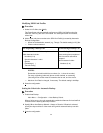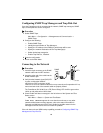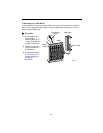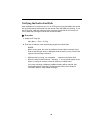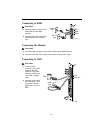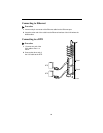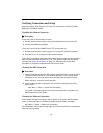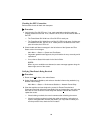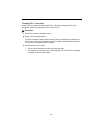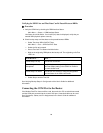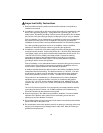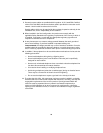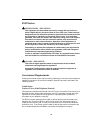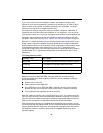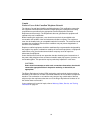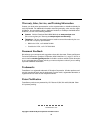
28
7. General purpose cables are provided with this product. A UL Listed/CSA Certified,
minimum No. 26 AWG, telecommunications cable is provided for connection to the
network. Use this cable to reduce the risk of fire.
Special cables, which may be required by the regulatory inspection authority for the
installation site, are the responsibility of the customer.
8. When installed in the final configuration, the product must comply with the
applicable Safety Standards and regulatory requirements of the country in which it
is installed. If necessary, consult with the appropriate regulatory agencies and
inspection authorities to ensure compliance.
9. A rare phenomenon can create a voltage potential between the earth grounds of
two or more buildings. If products installed in separate buildings are
interconnected, the voltage potential may cause a hazardous condition. Consult a
qualified electrical consultant to determine whether or not this phenomenon exists
and, if necessary, implement corrective action prior to interconnecting the products.
10. In addition, if the equipment is to be used with telecommunications circuits, take the
following precautions:
— Never install telephone wiring during a lightning storm.
— Never install telephone jacks in wet locations unless the jack is specifically
designed for wet locations.
— Never touch uninsulated telephone wires or terminals unless the telephone line
has been disconnected at the network interface.
— Use caution when installing or modifying telephone lines.
— Avoid using a telephone (other than a cordless type) during an electrical storm.
There may be a remote risk of electric shock from lightning.
— Do not use the telephone to report a gas leak in the vicinity of the leak.
11. To reduce the risk of fire, this component card cage must be installed in a suitable
Electrical and Fire Enclosure that complies with enclosure, mounting, casualty and
segregation requirements of the end-use product. Openings located within the
enclosure must be separated from any network-connected component by a
minimum of 25 millimeters of air when measured in any dimension, unless the
openings are 5 millimeters or less, or measure one millimeter in length, regardless
of the width.



